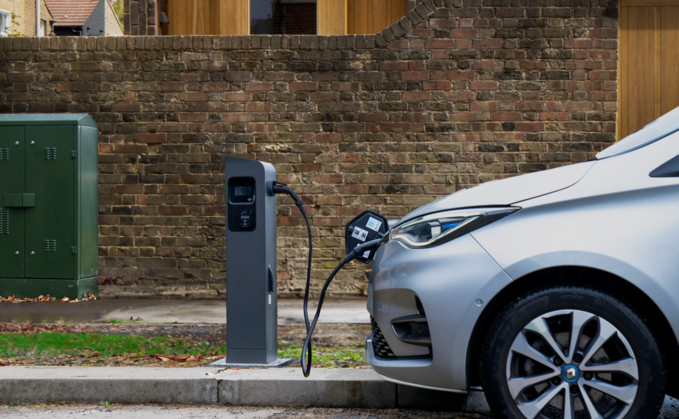
Up to 60,000 street cabinets could help tackle shortfall in EV charging infrastructure, Group claims
BT Group's start-up and digital incubation arm Etc. has today announced it will power up its first electric vehicle (EV) charging unit fashioned from a street cabinet that was previously used to house broadband and phone cabling at a site in East Lothian, Scotland
The move marks the first step in widespread technical trials that aim to explore the potential to refurbish up to 60,000 cabinets to help meet government EV infrastructure targets, with further pilots set to be rolled out across the UK in the coming months.
The project will see existing street cabinets fitted with a device to allow the renewable power provided to the unit for the existing broadband service to be shared with a charge point without the need to create a new power connection.
EV chargers could then be deployed alongside cabinets that continue to provide broadband services or as a replacement for units that are due for retirement.
Once cabinets are no longer needed for broadband as the nationwide full fibre rollout progresses, broadband equipment can be recycled and further EV charge points can be added, BT said, allowing the re-use of existing infrastructure and the faster deployment of charge points.
Through the forthcoming trials Etc. aims to assess cabinet locations, power availability, customer accessibility, the digital customer experience, and engineering considerations, as well as potential planning barriers.
Moreover, BT said the pilots would allow it to assess whether a wider rollout would be best driven as a venture from the company or in partnership with others, while from a commercial standpoint the trials will assess public funding options and the potential for private investment and wider financing models.
Tom Guy, managing director of Etc. at BT Group, described the new charging solution as a "huge step" in boosting access to kerbside EV charging.
"Working closely with local councils in Scotland and more widely across the UK, we are at a critical stage of our journey in tackling a very real customer problem that sits at the heart of our wider purpose to connect for good," he said.
"This is a key step in our mission to build products and services right now that work for the future, with positive transformation at the heart."
While the government aims to increase the number of charge points from 53,000 today to 300,000 by 2030, access to charging is already seen as a significant barrier to EV adoption for many customers, especially among those without access to off-street parking.
For example, 60 per cent of Brits recently surveyed by BT said the UK's EV charging infrastructure is currently inadequate, while 78 per cent of petrol and diesel drivers said not being able to conveniently charge is a barrier to switching to an EV.
Nonetheless, despite a slowdown in EV sales in December ahead of the introduction of the Zero Emission Vehicle Mandate, the number of EVs hitting UK roads in 2023 was up 50,000 units year-on-year according to new data from the Society of Motor Manufacturers and Traders.
BT Group's announcement comes after BP Pulse cut the ribbon on its "most powerful" charging hub to date at a site in central London, featuring eight ultra-fast 150kW chargers each capable of providing up to 100 miles of range in around 15 minutes.
Located at the Q-Park Pimlico car park in the Borough of Westminster, BP Pulse claims the December addition to its Greater London network of more than 570 charge points - including approximately 50 ultra-fast chargers - can accommodate 16 EVs simultaneously.
Moreover, four projects aimed at trialling smart charging systems that can both receive power and send it back to the grid were awarded a share of £4.8m in funding from the government shortly before the turn of the year.